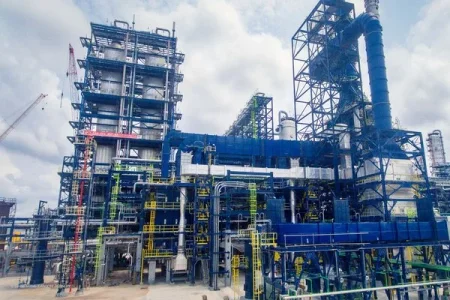
Global oil prices have dropped to their lowest in nearly four years, with Brent crude falling to $59.62 per barrel. This decline, triggered by new tariffs from the US and increased OPEC production, threatens Nigeria’s oil revenue, which is crucial for the country’s fiscal health and budget.
Global oil prices have hit their lowest level in four years, with Brent crude dropping to $59.62 per barrel and US West Texas Intermediate falling to $56.28 per barrel. The sharp decline comes amidst rising tensions between the US and China over tariffs. On April 2, President Donald Trump announced sweeping global tariffs, including a 14% tariff on Nigerian imports, significantly impacting global trade.
Further compounding the issue, OPEC and its allies, on April 4, agreed to increase oil production by 411,000 barrels per day, which could further reduce prices. This drop in oil prices has serious implications for Nigeria’s economy, as the current price is significantly below the 2025 budget benchmark of $75 per barrel.
Jide Pratt, COO of Aiona and country manager of Tradegrid, noted that the decline in oil prices would lead to reduced revenues and lower foreign reserves for Nigeria, particularly given the suspension of the naira-for-crude deal. The increase in foreign exchange rates further complicates Nigeria’s fiscal and monetary policies.
Pratt emphasized that now is the time for Nigeria to focus on diversifying its economy. The government has already indicated plans to ramp up oil production to offset the price decline. Finance Minister Wale Edun announced that Nigeria would intensify efforts to boost non-oil revenue through agencies like FIRS and Customs, in addition to exploring innovative non-debt financing strategies.
As oil production in Nigeria fell below expectations in February, the country faces an urgent need for economic diversification to buffer the impact of declining crude prices.




